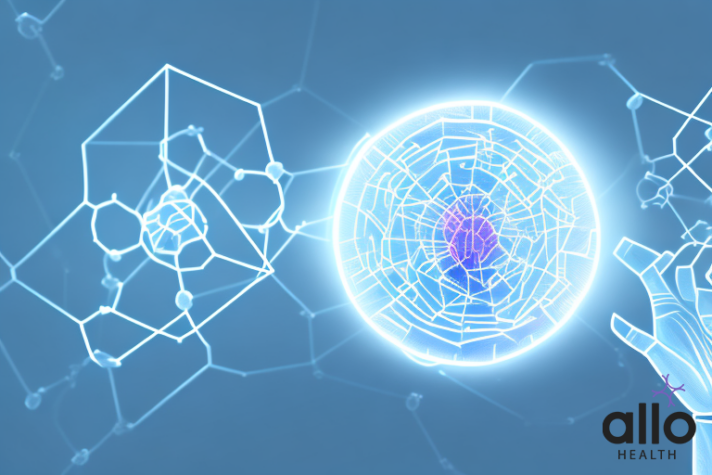Discover the Sexual Benefits of Zinc

Allo Health is dedicated to personalized well-being, offering support and trusted information tailored to individual health goals. The platform emphasizes human-generated content, led by a distinguished medical team of experts, including physicians and sexual health specialists. Their commitment to credibility involves rigorous fact-checking, authoritative research, and continuous updates to ensure accurate, up-to-date information. Allo Health's unique approach goes beyond conventional platforms, providing expert-led insights and a continuous commitment to excellence, with user feedback playing a crucial role in shaping the platform's authoritative voice.

Dr. Aditi completed her undergraduate medical education at AJIMS, Mangalore, after which she worked in multi-speciality hospitals with COVID patients and in the Pain and Palliative medicine department. Driven by her experiences, she developed a keen interest in psychiatry. Dr. Aditi believes that mental health is just as, if not more important, than physical health.
Why This Was Upated?
Our experts continually monitor the health and wellness space, and we update our articles when new information became available.
Updated on 10 December, 2023
- Article was updated as part of our commitment to diversity, equity, and inclusion.

"The following blog article provides general information and insights on various topics. However, it is important to note that the information presented is not intended as professional advice in any specific field or area. The content of this blog is for general educational and informational purposes only.
Book consultation
The content should not be interpreted as endorsement, recommendation, or guarantee of any product, service, or information mentioned. Readers are solely responsible for the decisions and actions they take based on the information provided in this blog. It is essential to exercise individual judgment, critical thinking, and personal responsibility when applying or implementing any information or suggestions discussed in the blog."
When it comes to maintaining sexual health and performance, there are many nutrients that play a critical role in human health. One such nutrient is zinc, which is vital for several aspects of sexual function, from increasing libido to supporting fertility.
In this comprehensive article, we’ll take an in-depth look at the science behind zinc and its effects on sexual health.
What is Zinc?
- Zinc is an essential trace mineral that plays a crucial role in various biological processes within the human body.
- It is classified as a micronutrient because the body requires it in relatively small amounts compared to macronutrients like carbohydrates, proteins, and fats.
- Zinc is involved in a wide range of physiological functions, including immune function, wound healing, DNA synthesis, and cell division. It also plays a key role in maintaining the health of skin, hair, nails, and the senses of taste and smell
- Maintaining an adequate level of zinc in the body is vital for overall health and well-being.
Why is Zinc Important?
Zinc is crucial for a variety of essential functions in the body, making it an important mineral for overall health. Here are several key reasons why zinc is important:
- Immune function: Zinc is vital for a well-functioning immune system. It helps in the production and activation of immune cells, aiding the body in fighting off infections and illnesses.
- Wound healing: It plays a significant role in the process of wound healing. Zinc is involved in cell division and tissue repair, helping wounds to close and heal effectively.
- DNA synthesis and cell division: Zinc is essential for the replication of DNA and the division of cells. This is crucial for growth, development, and overall maintenance of the body’s tissues.
- Sense of taste and smell: Zinc is required for the proper functioning of taste and smell receptors. A deficiency in zinc can lead to alterations in these senses.
- Skin health: Zinc supports the health of the skin by regulating inflammation, aiding in the production of collagen, and promoting overall skin integrity.
- Reproductive health: In men, zinc is important for the production of healthy sperm and is vital for normal reproductive function. In women, it is necessary for proper fetal development during pregnancy.
- Metabolism of nutrients: Zinc is involved in the metabolism of carbohydrates, fats, and proteins. It helps in the breakdown and utilisation of these macronutrients for energy.
- Antioxidant defense: Zinc acts as an antioxidant, helping to protect cells from damage caused by free radicals, which are harmful molecules that can lead to various health issues.
- Neurological function: Zinc is essential for normal brain function and has been implicated in cognitive processes, learning, and memory.
- Growth and development: Adequate zinc is crucial for normal growth in children, including physical growth, cognitive development, and immune system maturation.
- Regulation of hormones: Zinc helps regulate the production and activity of various hormones in the body, including those involved in growth, sexual development, and appetite control.

Because the body doesn’t naturally produce zinc, it must be obtained through diet or supplements. Ensuring an adequate intake of zinc is vital for overall health and well-being. However, excessive zinc intake can also have adverse effects, so maintaining a balanced approach is key.
Symptoms of Zinc Deficiency
- Impaired immune function
- Delayed wound healing
- Loss of taste and smell
- Skin problems (e.g., rashes, dryness)
- Growth retardation in children
- Cognitive impairment
- Hair loss
- Decreased appetite or loss of appetite
- Changes in vision
- Mood disorders
Symtpoms of Zinc Toxicity
- Nausea
- Vomiting
- Diarrhoea
- Stomach cramps
- Headaches
- Reduced immune function
- Lowered levels of “good” HDL cholesterol
- Interference with absorption of other essential minerals, such as copper and iron
- Disruption of normal bodily functions
Benefits of Zinc for Sexual Health
Zinc plays a crucial role in supporting sexual health, particularly in men. Here are some of the benefits of zinc for sexual health:
- Sperm production: Zinc is essential for the production of healthy, motile sperm. It is a key component of seminal fluid, and a deficiency can lead to reduced sperm count and impaired fertility.
- Testosterone levels: Zinc helps regulate testosterone levels, which is important for maintaining libido, sexual desire, and overall sexual function in men.
- Prostate health: Zinc is concentrated in the prostate gland, and it contributes to its overall health and function. It helps maintain proper prostate size and function.
- Erectile function: Zinc supports the health of blood vessels and smooth muscle function, which are crucial for achieving and maintaining an erection.
- Libido and sexual desire: Adequate zinc levels are associated with healthy sexual desire and libido in men.
- Hormonal balance: Zinc helps regulate various hormones involved in sexual health, ensuring a proper balance that supports normal sexual function.
- Fertility in men: Zinc deficiency has been linked to decreased fertility in men. Ensuring sufficient zinc levels can help improve fertility.
- Orgasm function: Zinc contributes to the muscle contractions involved in ejaculation, which is important for sexual satisfaction.
Can Zinc Deficiency Cause Sexual Dysfunction?
- Zinc deficiency can potentially lead to sexual dysfunctions, particularly in men.
- Zinc plays a crucial role in the production and maturation of sperm, making it essential for male reproductive health.
- It is involved in regulating testosterone levels, which are vital for maintaining libido and overall sexual function.
- A deficiency in zinc may lead to reduced sperm count, impaired sperm motility, and altered levels of sex hormones, all of which can contribute to difficulties in achieving and sustaining an erection, decreased sexual desire, and even fertility concerns.
- It’s important for individuals experiencing sexual dysfunctions to consult a healthcare professional who can assess their overall health, including zinc levels, and provide appropriate guidance and treatment
Food Sources of Zinc
- Red Meat: Beef, lamb, and pork are rich sources of zinc. Lean cuts of meat provide a substantial amount of this mineral.
- Poultry: Chicken and turkey are good sources of zinc. The dark meat tends to have higher zinc content than white meat.
- Seafood: Oysters are exceptionally high in zinc. Other seafood like crab, lobster, and mussels also provide significant amounts of this mineral.
- Dairy products: Dairy foods like milk, cheese, and yogurt contain moderate amounts of zinc. Greek yogurt is a particularly good source.
- Legumes: Beans, lentils, chickpeas, and other legumes are plant-based sources of zinc. They can be a valuable part of a vegetarian or vegan diet.
- Nuts and seeds: Pumpkin seeds (pepitas), hemp seeds, cashews, and almonds are all good sources of zinc.
- Whole grains: Whole grains like wheat, rice, and oats contain some zinc. However, the presence of compounds called phytates can reduce its absorption.
- Fortified foods: Certain cereals and other processed foods are fortified with zinc. Check product labels for details.
- Eggs: Eggs contain a moderate amount of zinc, especially in the yolk.
- Vegetables: Some vegetables like spinach and mushrooms contain zinc, although the levels are generally lower compared to animal-based sources.
- Dark chocolate: Dark chocolate contains zinc in addition to other beneficial minerals and antioxidants.

Are Zinc Supplements Safe?
- Zinc supplements can be safe when taken appropriately and within recommended dosages.
- Zinc is an essential mineral that the body requires for various physiological functions.
- However, like any supplement, it’s important to use them responsibly and with caution.
Key Takeaways
- Zinc, an essential trace mineral, plays a vital role in various bodily functions, including immunity, wound healing, and reproductive health.
- Adequate zinc levels are crucial for maintaining overall health and well-being, making it an important nutrient.
- Zinc deficiency can lead to a range of issues, including impaired immune function, delayed wound healing, and cognitive impairment.
- Excessive zinc intake, on the other hand, can result in symptoms like nausea, vomiting, and interference with nutrient absorption.
- In terms of sexual health, zinc is essential for sperm production, testosterone regulation, and overall reproductive function, particularly in men.
- While zinc supplementation can be beneficial when used responsibly, it’s important to consult a healthcare provider for personalised advice on intake.
Frequently Asked Questions
Q: Can zinc deficiency lead to erectile dysfunction?
A: Yes, zinc deficiency can contribute to erectile dysfunction. Zinc is crucial for maintaining proper blood flow and hormonal balance, both of which play a role in achieving and sustaining an erection.
Q: What is recommended intake of zinc for adults?
A: The recommended daily intake of zinc for adult men is around 11 milligrams per day, and for adult women, it is about 8 mg. However, individual requirements may vary based on factors like age, gender, and overall health.
Q: Can zinc deficiency lead to prostatic hyperplasia?
A: While zinc deficiency has been studied in relation to prostate health, a direct link to prostatic hyperplasia (enlarged prostate) is not conclusively established. However, ensuring sufficient zinc levels is important for overall prostate function and health.
Q: What are the possible side effects of zinc supplements?
A: Excessive intake of zinc supplements can lead to potential side effects. These may include gastrointestinal discomfort, such as nausea, vomiting, and diarrhea. Additionally, overconsumption of zinc can interfere with the absorption of other essential minerals like copper and iron, leading to imbalances in the body. It’s crucial to adhere to recommended dosage guidelines and seek guidance from a healthcare professional when considering zinc supplementation.
Q: What conditions interfere with zinc absorption?
A: Conditions that can interfere with zinc absorption include gastrointestinal disorders like Crohn’s disease, celiac disease, inflammatory bowel disease, and ulcerative colitis. Additionally, chronic liver and kidney diseases may also affect the body’s ability to absorb and utilise zinc effectively. Some medications can also interfere with the intestinal absorption of zinc.






































